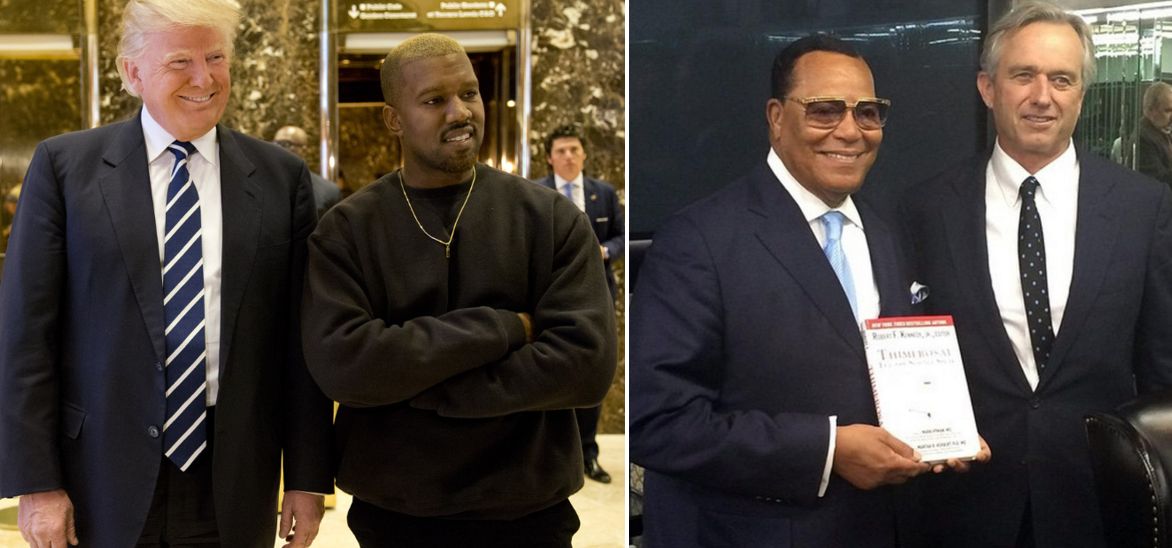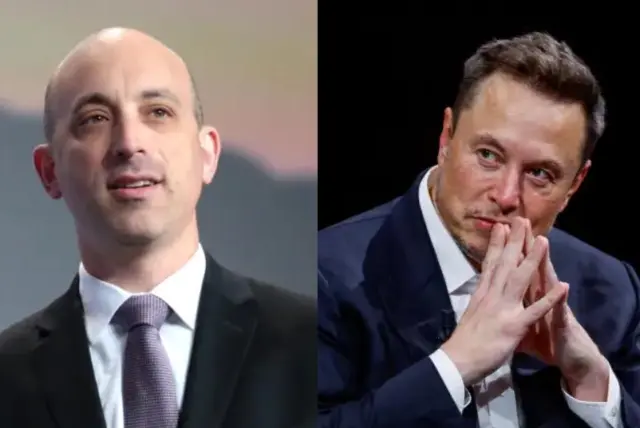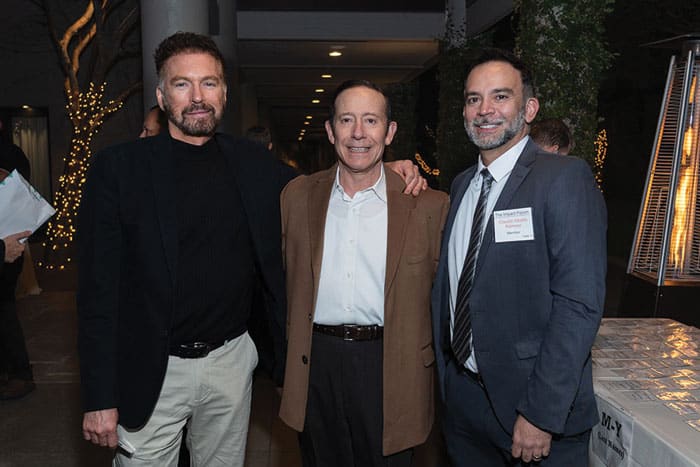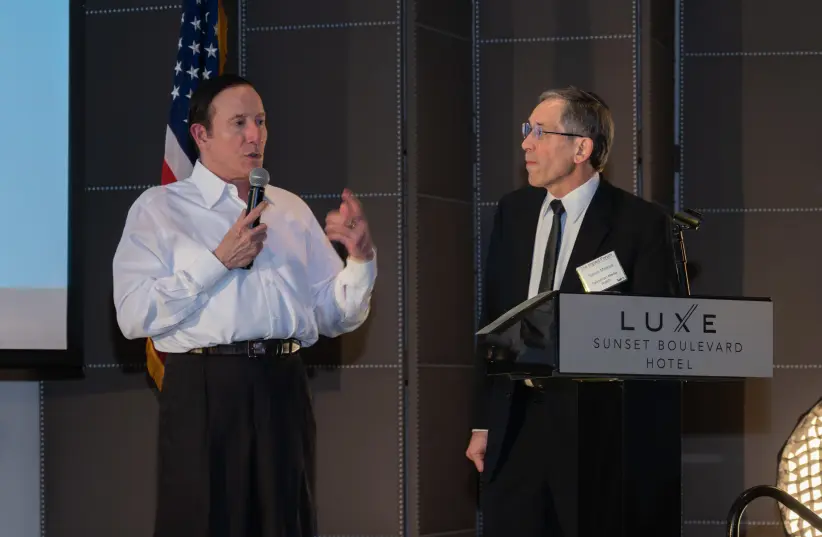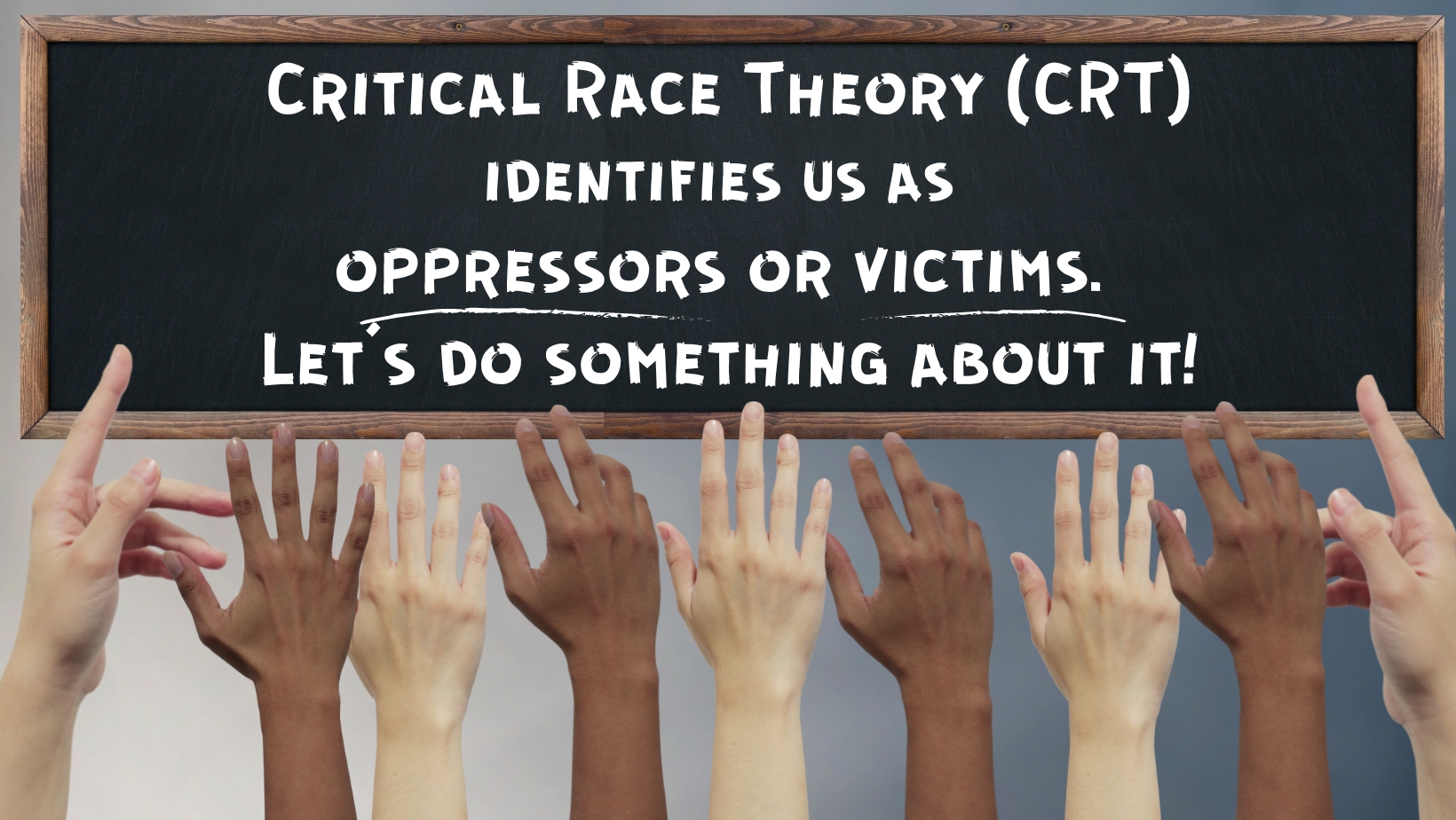This article was originally published in the Jerusalem Post on September 28th, 2023, written by Adam Milstein
Yes, associating with antisemites should be unacceptable.
We live in an age in which ideas, including extreme ones, spread instantly. This allows hate and bigotry, including antisemitism, to flourish both online and in person. In this digital age – where legacy media, politicians, and corporations no longer shape the collective consciousness as they once did – the responsibility of holding antisemites accountable has broadened.
This responsibility now falls on the shoulders of each one of us. We must involve American leadership, and civil society institutions to condemn and call out this hatred whenever we encounter it.
Why should we care? The Hate that Starts with Jews Never Ends With Jews said Rabbi Jonathan Sacks. Antisemitism threatens not only the Jewish community, but all Americans. Sooner or later, antisemites also peddle racial, ethnic, and religious hatred against other communities.
As antisemitism is being normalized in America, time is of the essence to identify antisemites and hold them accountable.
We Must Establish and Enforce Clear Norms.
To effectively combat antisemitism, we must not only confront those who directly promote this ideology, but also those who indirectly associate with anti-Semites.
There is no doubt in our mind that associating with known antisemites should be unacceptable, regardless of any excuse or explanation. To properly adjudicate what is and what is not acceptable, we must establish the following guardrails:
Ignorance is No Excuse.
In 2015, Robert F. Kennedy Jr., now a presidential candidate, visited Louis Farrakhan, one of the most infamous antisemites of our times, and lauded Farrakhan as a “truly great partner” for his critical views on vaccines. He continued his associations with members of Farrakhan’s Nation of Islam until at least 2021. When challenged on the encounter, Kennedy claimed ignorance about Farrakhan’s history of antisemitism.
Kennedy also interacted with other promoters of antisemitism, such as Ice Cube and Roger Waters. It’s hard to believe he was not aware that these individuals have perpetuated bizarre conspiratorial antisemitic beliefs and actions, but even if he did, he should have condemned them immediately, which he did not.
Kennedy claimed he was he misunderstood, and that he is a strong champion for Israel. However, his decision to join forces with these antisemites effectively giving their history a pass, is unacceptable.
Self-proclaimed innocence is not innocence
Accountability extends to even the highest echelons of power. Last year, former president, Donald Trump, hosted Kanye West and Nick Fuentes for dinner – both of whom publicly expressed vicious antisemitism. By hosting them, Trump not only validated, but elevated them.
In response to the backlash, Trump claimed “not to know about Fuentes”. However, alleging ignorance in response to public backlash is not a valid excuse. Trump’s pro-Israel policies do not grant a free pass for platforming blatant antisemites. He too should be condemned for these associations.
Antisemitic Patterns Matter
Patterns of behavior cannot be ignored. For example, antisemitism has been a problem on CUNY campuses for years. Numerous incidents, including an anti-Israel commencement speech by known antisemite Nerdeen Kiswani in 2021, as well as a survey revealing high levels of antisemitism among CUNY students demonstrate CUNY’s tolerance of antisemitism.
The Equal Employment Opportunity Commission even cited CUNY in 2021 for failing to protect a Jewish professor from discrimination based on his faith. The decision in 2013 to host Fatima Mohammed – a radical anti-American and antisemitic – as commencement speech was the cherry on top.
Many Jewish leaders, including Ronald Lauder, called for the law school dean to be fired after she was among the faculty on stage who applauded Mohammed’s speech, but were ignored.
CUNY’s association with antisemites and pattern of behavior is undeniable, and we should not shy away from calling, condemning and sanctioning the University for its support of antisemitism.
What Can Each of Us Do:
1. Be Firm in Condemnation: We must encourage American leaders, institutions, the media, and any other establishment that has a stance in the public domain to hold antisemites accountable for their hate by refraining from associating with them. Excuses like “but I am not antisemitic” should not suffice.
2. Engage in Discourse: Don’t solely condemn someone based on associations. It is also essential to engage in thoughtful dialogue. Understanding perspectives, intentions, and values can lead to more productive conversations on the dangers of antisemitism to our common values.
3. Encourage Accountability: Individuals should be held accountable for their associations and actions. If someone knowingly associates with antisemites, even if they don’t espouse direct antisemitism themselves, should acknowledge their mistake openly, apologize if necessary, and demonstrate a commitment to change. We must hold ourselves and the ones we associate with in the highest regard and not make excuses.
4. Promote Education: Fostering an environment of education and open discussion is crucial for recognizing the signs of antisemitism and other forms of hate and bigotry before they manifest. We must call antisemites out in public and educate others about the hate that is underlying their views. Antisemitism often serves as a disguise for anti-American sentiments and a threat to democracy. This connection should be made explicitly. Education helps inform individuals to make informed decisions about their association
Confronting those who openly espouse antisemitism is often easier than standing up against those who validate or provide platforms for this hate. Association with antisemites emboldens them to continue in their hateful course of action. To combat hate, bigotry and antisemitism effectively, we must collectively establish clear norms and hold individuals accountable not only for their actions, but for the unavoidable results of their actions as well. By doing so, we can work towards a more tolerant society where antisemitism has no place.
Adam Milstein is an Israeli-American “Venture Philanthropist.” He can be reached at [email protected], on Twitter, and on Facebook.
This op-ed is published in partnership with a coalition of organizations that fight antisemitism across the world.

